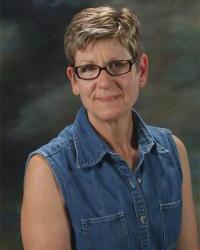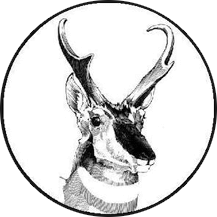 The 2021 recipient of the Hartley H. T. Jackson award for service to the ASM is Dr. Meredith J. Hamilton. Now retired and holding emeritus status, Meredith was a faculty member in the Department of Integrative Biology at Oklahoma State University 1996-2019. She also has been (and still is) affiliated with the Museum of Texas Tech University and Sam Noble Oklahoma Museum of Natural History as a Research Associate. Her undergraduate and master’s degrees are from the University of Arkansas and Memphis State University, respectively. Receiving her Ph.D at Texas Tech in 1989, she held Post-Doctoral Fellowships at the University of Idaho and Los Alamos National Lab. Primarily a geneticist, Dr. Hamilton is an author of 49 publications on a variety of taxa (some non-mammalian). Subjects include genic variation, cytogenetics and systematics, evolution in satellite DNA, karyotypic evolution, phylogeography, and conservation genetics.
The 2021 recipient of the Hartley H. T. Jackson award for service to the ASM is Dr. Meredith J. Hamilton. Now retired and holding emeritus status, Meredith was a faculty member in the Department of Integrative Biology at Oklahoma State University 1996-2019. She also has been (and still is) affiliated with the Museum of Texas Tech University and Sam Noble Oklahoma Museum of Natural History as a Research Associate. Her undergraduate and master’s degrees are from the University of Arkansas and Memphis State University, respectively. Receiving her Ph.D at Texas Tech in 1989, she held Post-Doctoral Fellowships at the University of Idaho and Los Alamos National Lab. Primarily a geneticist, Dr. Hamilton is an author of 49 publications on a variety of taxa (some non-mammalian). Subjects include genic variation, cytogenetics and systematics, evolution in satellite DNA, karyotypic evolution, phylogeography, and conservation genetics.
Meredith has been active in a number of organizations, including the Texas Society of Mammalogists and the Southwestern Association of Naturalists. But it is her service to ASM that is extraordinary. She has logged over 84 committee years of service to the Society in both unofficial and official capacities. Providing support to the editorial enterprise in an informal capacity prior to formal appointments, Meredith began formal service on ASM committees in 1990, including Honoraria, Grants-in-Aid, Program, Editorial, Publications, and Strategic Planning. She also served two terms on the Board of Directors and one term as Vice President.
But it is in the editorial area that Dr. Hamilton has been tireless, serving the Journal of Mammalogy as an Associate Editor and Editor for Advertising, as well as being Editor for Special Publications. For the past 15 years, she has been Editor of Mammalian Species, shepherding almost 200 accounts to completion and implementing significant improvements in format and appearance of this publication. In this role, she has gone well above and beyond what is required, patiently mentoring authors—our international colleagues in particular—on matters of style, grammar, and the exceptionally detailed requirements of synonymies. The ASM and our science are far better for these efforts.
It is sometimes difficult to appreciate the contributions of individuals who have unassumingly worked behind the scenes to take care of ASM business, mentor students, support authors, and assist in running annual meetings. Perhaps they are captured in the words used by our colleagues in describing Meredith’s personal traits and abilities. They include “kindness,” “generosity,” “upbeat,” “professional,” “nurturing,” “calm,” “steady,” “no-nonsense,” “organizer of chaos,” “accomplished,” “inspirational,” and “an icon.” Clearly, she has played a significant role in building the personal relationships that have contributed to the sense of family that makes the ASM unique among professional societies.
